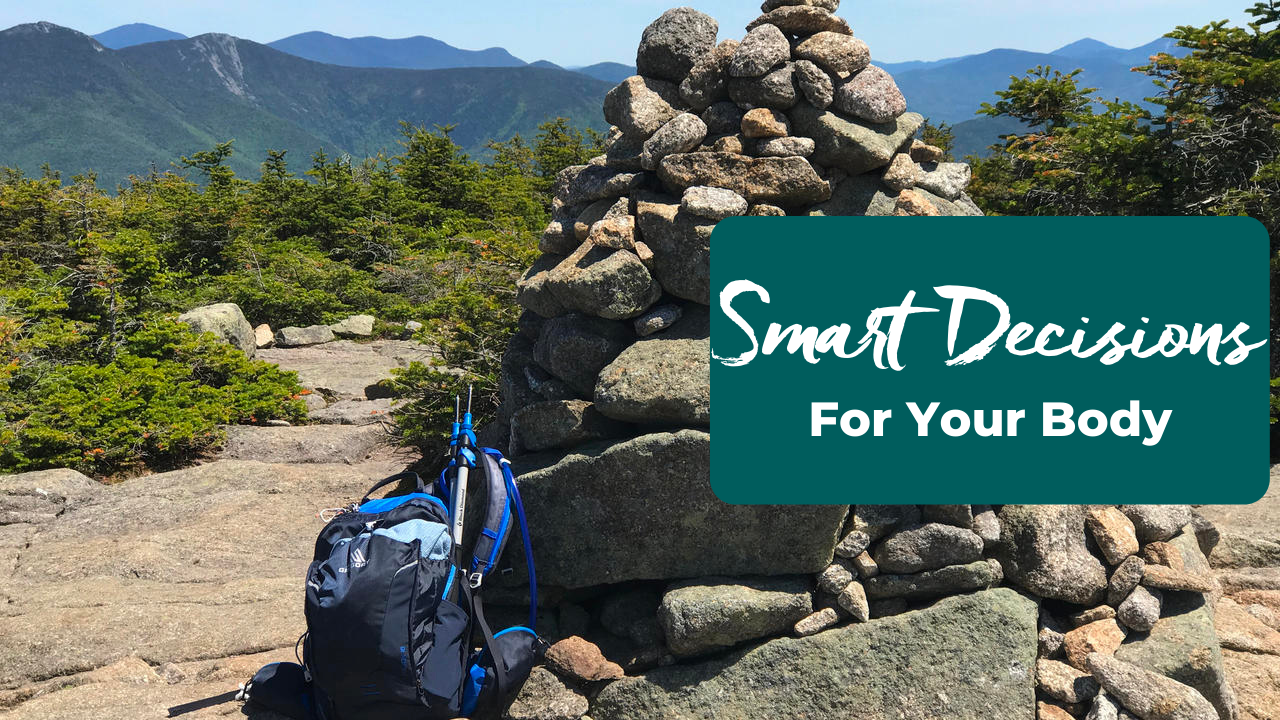
How to Make Smart Decisions for Your Body
Dec 23, 2020Everyone's body is different. We know that and maybe we've even said that a million times. But do we truly accept it? It's human nature to compare ourselves to others. So when we're looking at our Pilates peers, the runner on the treadmill next to us, or the other hikers on the trail we might catch ourselves in a secret competition with them. The logical side of our brain knows this is silly. Each of us has a whole lifetime of habits and different genetics which creates a unique set of strengths and weaknesses.
Getting to know your body really well and accepting it for where it is right now, at this moment, is one of the most useful skills you can have while living an active life. With this knowledge, you can make smart decisions that lead to quicker progress towards your goals. Pay attention to the signals your body gives you. What leads to pain and aches in your body? What makes you feel energized? Your body tells you, you just need to listen to it.
For example, during a recent hike, I noticed that my right knee started to hurt about halfway through my descent back down the mountain. Within a few minutes of a steep descent, it got more and more painful to bear weight on it. Knowing my body really well, I wasn’t too worried about my knee because I knew that the reason for the pain was a tight calf muscle. Luckily, by doing the calf squeeze and calf stretch with the half roller diligently for a few days after the hike, my knee was soon back to normal. Knowing my body well told me what was wrong, how to fix it, and how to prepare for future hikes.
Related: A Quick Pilates Warm-Up for Hiking
Now on to you. First, understand and accept that your body is completely different from anyone else’s. Different from mine, your spouse’s, your bestie’s. In addition to listening to your body's cues, having an assessment done can be very eye-opening. If fitness assessments were included in your teacher training, you can take yourself through it or ask for the help of another teacher. Sometimes it takes an outside perspective to see ourselves more clearly.
Armed with this knowledge, you can base decisions on what's best for YOU. Continuing with the example of hiking, maybe you're wondering if it's necessary to buy hiking poles. You see some people that are your age and seem to be around the same fitness level using them, but some people aren't. When you know your own body, you don't need to be distracted by what other people have decided. By deciding to listen to your body, you might choose to throw the poles in your bag and stay alert to your body's cues as you hike. If you don't need them, great! If after a while you decide you want them, that's great too.
Related: Pilates for Hiking
Common sense is the best hiking partner/ personal trainer/ advocate for yourself you'll ever have. Your body’s sensations are an indicator of what’s happening. Learn to read its signals and accept them without judgment. When you get into the driver's seat for your own body and the decisions you want to make for it, your active lifestyle will be so rewarding and enjoyable.
Get support with your day-to-day teaching challenges
Ready to Teach Pilates with Clarity and Confidence?
Sign up to receive my weekly email newsletter. It's jam-packed with Pilates articles, videos, exercise tutorials and teaching tips.
Only super valuable stuff here. No spam ever. Unsubscribe any time.













